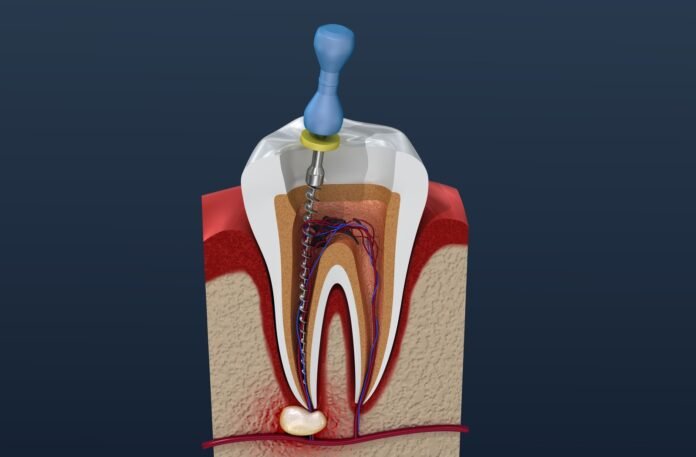Tooth pain can be a real struggle, impacting daily activities and even sleep. When cavities, cracks, or infections in a tooth’s root become severe, a root canal procedure is often the recommended solution. Root canals are known to relieve pain, stop infection, and save the natural tooth. Here’s a look at how this treatment works and why it can effectively put an end to tooth pain.
Understanding Tooth Pain and Root Canals
Tooth pain usually starts with sensitivity to hot or cold foods or a mild ache that can intensify over time. Pain in the teeth often occurs when the tooth pulp, which contains nerves and blood vessels, is damaged or infected. A root canal treatment is designed to remove the infected pulp, clean out the inner tooth, and protect it from further infection. When done properly, this treatment can significantly reduce pain, preserving the tooth and preventing the need for extraction.
If you’re dealing with persistent tooth pain and are considering a root canal, consulting a professional, such as a root canal doctor in Udaipur, is essential. Dentists use this treatment as a way to address deep infections and protect the tooth structure, which can otherwise be weakened by decay or damage.
The Root Canal Procedure: What to Expect
A root canal is generally a multi-step process that begins with an examination and X-rays to determine the extent of the damage. After a diagnosis, the dentist numbs the area around the affected tooth, so the procedure is comfortable and painless. Here’s a breakdown of what happens:
- Removing the Infected Pulp: The dentist makes a small opening in the top of the tooth to access the pulp chamber. Using special instruments, the infected pulp tissue is carefully removed.
- Cleaning and Shaping the Canals: After the pulp is removed, the empty canals are thoroughly cleaned to eliminate any remaining bacteria. The canals are then shaped to ensure a proper fit for the filling material.
- Filling and Sealing the Tooth: A biocompatible material, usually a rubber-like substance, is used to fill the cleaned canals. This filling material prevents bacteria from entering and causing further infection.
- Restoring the Tooth: In most cases, a crown is placed over the treated tooth to protect it from fractures or further damage. The crown also restores the tooth’s natural shape and function.
How a Root Canal Alleviates Pain
The main reason a root canal can eliminate tooth pain is by addressing the source of infection or inflammation. The pulp of the tooth contains nerves that send pain signals when infected. By removing this pulp, the root canal procedure stops these signals, relieving pain and preventing the spread of infection to surrounding teeth or gum tissues.
After the procedure, it’s common to experience mild soreness, but this typically subsides within a few days. Following care instructions and taking prescribed medications can help speed up recovery. For people in need of treatment, finding the best dentist is important to ensure effective and lasting results. In cities like Udaipur, finding skilled root canal doctors is possible, with numerous professionals specializing in this treatment.
Long-Term Benefits of a Root Canal
A root canal offers several long-term advantages beyond pain relief. For one, it saves the natural tooth, which is always preferable to extraction. By keeping the tooth intact, a root canal preserves the alignment of surrounding teeth and maintains a healthy bite. This helps prevent issues with chewing, speech, and overall oral health.
Additionally, root canals are highly successful when performed by experienced dentists. In fact, most root canal-treated teeth can last a lifetime with proper care, regular check-ups, and good oral hygiene. For those seeking reliable treatment, consulting one of the experienced root canal doctors is a wise choice to ensure quality results.
How to Care for Your Tooth After a Root Canal
Proper aftercare is essential to ensure a successful recovery following a root canal procedure. Here are some tips to help maintain the health of the treated tooth:
- Avoid Chewing on the Treated Tooth: Until the permanent crown is in place, avoid chewing with the treated tooth to prevent damage.
- Maintain Good Oral Hygiene: Brush and floss regularly to keep the surrounding teeth and gums healthy.
- Follow Up with Your Dentist: Regular dental check-ups help monitor the health of the treated tooth and ensure no complications arise.
Choosing a reputable dental professional is essential to receive high-quality care. Consulting the best dentist in Udaipur can ensure that the root canal procedure is done with precision, minimizing any potential risks and enhancing the tooth’s durability.
When to Consider a Root Canal
Not all tooth pain requires a root canal. However, if you have a toothache that doesn’t go away, swelling, or sensitivity to hot and cold, it may be time to visit a dentist. Often, dentists will recommend a root canal when the pulp is infected or badly damaged, as this procedure is more effective than fillings or temporary treatments for deep infections.
Root canal treatment can be a great way to save a tooth that might otherwise be lost. For people experiencing prolonged tooth pain, consulting a root canal specialist can lead to a better understanding of the issue and effective relief from discomfort.
Conclusion
A root canal is a proven, effective way to relieve tooth pain and prevent further complications. This procedure targets the infected tooth pulp, eliminates pain, and preserves the natural tooth structure. By choosing a skilled dentist for the procedure, patients can expect a smooth experience and long-lasting relief from dental discomfort.



